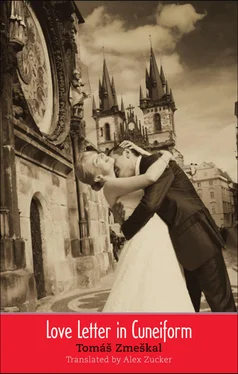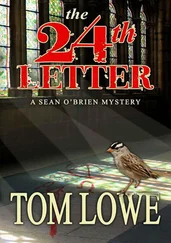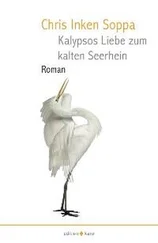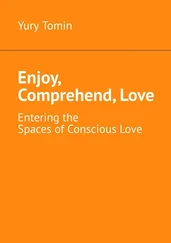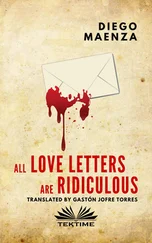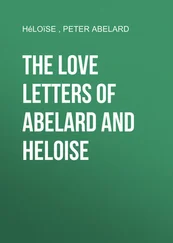And so they locked me up. I was locked up for ten years. Alice was only a few months old when they put me away, and I’m sorry for those ten years. I’m sorry I didn’t see her grow up. When I came home, she was almost eleven and headed full steam for adulthood. And though I tried, I never could make up for those years. When I came home, I was a stranger to her.
But even before then, before I completely gave up on everything, at those moments when I still had some barely quantifiable fraction of hope, I tried to hold on to my dream and at least learn a little bit, as much as I was capable of, about the cultures of antiquity. By the time I came home from jail, Professor Hrozný was dead. I knew he had been trying to decipher another script, called Linear B. From what I heard, he had failed or come up short, but before they released me from prison, an English architect named Ventris deciphered it, in 1956. He was an architect, I was a structural engineer. We were practically colleagues. All that I found out only after my return to freedom. Outside our country, time passed quickly; inside, it had come to a standstill. More out of habit than anything else, as a sort of luxury hobby, every now and then I go to the library and borrow some books on antiquity. I circled around it for a long time, but then it struck me it would be good to learn another language, one that people actually spoke. So I gave it a try, starting with French. I took it slow and steady, and I admit I wasn’t much good. I got the grammar, even the exceptions, and the pronunciation, too, but whenever I studied the vocabulary I would slip into a black hole and get caught up in unwanted memories. The moment I closed my eyes so I could concentrate on the words, I would find myself back at the interrogation, in the dark, sitting on a metal chair with a scarf over my eyes, caked in the blood running down my face, just barely breathing.
After a while I gave up. I couldn’t keep going back to the worst moments of my life. Throughout all my studies I had been able to learn difficult things by closing my eyes and watching them appear in front of me like a series of wide-angle color pictures. I couldn’t do that anymore. I had no choice but to surrender my youthful dreams, and all I had left was my shabby attempt to win back the love of my wife.
Dear Lieutenant, I’m not entirely sure this statement or biography of mine will be of any use. In any case, I hope it is, and I am fully at your service.
Respectfully,
Ing. Josef Černý
(structural engineer, retired)
8. FIRST VISION OF IMMORTALITY: PERSIA
Dr. Antonín Lukavský wasn’t entirely satisfied with pastry chef Marek Svoboda’s explanation as to why he had adopted Hitler as one of his chosen names. Needless to say, the patient exhibited clear paranoid tendencies in relation to women and to human society in general. On top of that, there was the notion of scientific progress put to monstrous ends, which existed solely in the patient’s imagination. Technically it wasn’t feasible, nor clearly would it be at any point in the future. The one thing that was clear in all of this was the patient’s predilection for fantastic stories. Dr. Lukavský also considered whether the patient might have some reason to simulate a psychological disorder, but he could find no apparent motive. There had been a change on the unit, however. The arrival of the pastry chef had led to a sharp increase in the quality of the otherwise mediocre fare. He had very quickly introduced himself to the hospital cooks, and the food not only smelled good now but was also unusually tasty, and Antonín couldn’t help noticing that the patients, the staff, even he himself, had begun to look forward to meals. As for Svoboda himself, however, after a few weeks it was clear he didn’t need to remain on the unit, and he was released under the condition that he visit Antonín in his office once a month. The two of them talked about everything imaginable, and Antonín actually enjoyed their conversations. He found Svoboda’s directness refreshing. More than once they ended up in a dispute about the meaning of medicine.
“What is the point of it anyway?” Svoboda asked.
“Health!” said Dr. Lukavský.
“And once the causes of every disease are discovered and they are all cured?”
“That’s an abstract problem. I’m not concerned. It won’t happen in my lifetime.”
“And what comes after that?” asked Marek. “After that, its true nature will be exposed, which is the desire for immortality. I’m almost certain, brother,” he said firmly. “I’ve had two visions on this topic, two visions on immortality. Today I’ll tell you the one that took place far from here and in the past. Next Thursday I’ll be passing by and I can tell you the other one, which transpired here, but in the future.”
He began as follows: “We were traversing the mountains. My wife and I, my younger brother, a few relatives, and a team of porters, helpers, and servants. I could no longer tell whether we were refugees or merchants. For that matter, the difference between them didn’t seem so great. We were surrounded by high mountains. I said we were traversing the mountains, but what I should have said was we were trying to avoid them. Traversing the mountains doesn’t mean traversing over the mountains. We attempted, craftily, like clever snakes, to slip through gorges and passes, bribe guards, pay guides, avoid customs. We were attempting to elude our natural fate, we were attempting something daring: to survive. We sold a variety of goods, smuggled a variety of goods, bought and sold everything there was to buy and sell, and even then we had only enough to shield our nakedness. We headed for Persia, evading one army after another along the way. By early spring I hoped to be in Tabriz, where I had arranged some business the previous year. This year we set out a little sooner, but spring had changed from a blossoming maiden into an old woman, her face covered in smallpox. Winter wasn’t going away. In fact, just the opposite.
“On the twelfth day of our journey, I noticed my wife was looking more agonized than before and it took all the effort she had just to stay on her horse. At first I attributed it to her women’s problems, which surely God, in his omnipotence, had inflicted on them as punishment for the suffering they caused men, but then I heard the cough racking her chest with a cracking sound like kindling. The light in her eyes had dimmed, her blue-black hair had lost its shine, and I began to worry whether I would be able to fend off Azrael, the archangel of death. I hadn’t slept a wink in days, and after a week of her falling asleep with her head on my lap, listening to the parched sound of her breathing every night, I decided that we would return home. But I made my decision too late. Yet another accursed army belonging to yet another accursed power, this time from blasted Europe, was driving yet another wave of dying refugees before it like a swarm of insects. The way north back home was impossible now, for God, whose sight causes the stars to rise and fall, had dealt us another blow: Again the barbarians sought to seize control of our passes, our mountains, our minerals, the wealth of our land and what lies beneath it, and I wished to God, whose name is eternal, that he might deal them the same injustice as he had dealt us. My younger brother tried to get hold of a doctor and wise man recommended to us by my friend the rug merchant, but when we came to the designated location, we found the whole village empty and marked with the sign of fire. I walked through one, two, three burned homes and ordered everyone back on their horses, even though my people had a whole day’s march behind them and I had to bring them into line with a few cracks of the whip. I ordered them not to waste time burying the bodies of the dead, lest we share their fate, and to load their rifles. If anyone wanted our lives, they would have to pay the price. I could no longer bear to look at my wife, so I rode to the head of my people and ordered my brother to keep his eyes on her and let me know when she was at her end and the angel of death was in sight. At midday we came upon a few other traders. They were happy to join our ranks, and as I didn’t know the way too well I was glad to have them. When it was time for prayer, my brother came to me and said sadly that my wife’s life was hanging by a single silk thread of hope, and the fibers were quickly unraveling. One of the traders who had joined us overheard and told me his father was a doctor. He said he’d picked up a thing or two from him and asked if he could examine my wife. So I took him to her and saw my wife for the first time in two days. She was more beautiful than ever and she was dying. I left the trader to tend to her, and went off with my brother to pray to God, whose mercy knows no bounds. I prayed and asked for advice. What to do? We were in unfamiliar territory, murderous barbarians to the north, thousands of refugees to the northeast, Tabriz many miles away, and if we strayed from the road, either the fanatic European barbarians would get us or somebody else. Before I had finished my second series of prayers, the man who had examined my wife came to me and said that if we didn’t come down from the mountains to allow her a chance to heal, she would die within a week. If I wanted to save her, I had to descend into a valley immediately. And since God, who weeps over our deeds, had seen fit to punish me with stubborn and unrelenting love for my suffering wife, I made up my mind on the spot. I took counsel with a few of the other merchants, who knew the area, and was told that there was a valley just a few hours’ rough ride away; we could make it before nightfall. I silently thanked God, who knows even the most secret intentions of our hearts, and immediately gave the order to change route. We were somewhere between Armenia and Persia. I sent my best rider out ahead on my best horse as an advance guard, instructed my brother to guard my wife like the apple of his eye, and we began our descent. The way was poorly marked, strewn with rocks, and hadn’t been used in years. The only regular traffic it saw was the mountain stream that flowed down it every year in spring. As we made our way along the trail, unwinding before us like a ball of snakes, I was afraid one of our animals was going to break its neck. In the event, the animals were more fortunate than one of my servants, who tripped and went tumbling down the incline. A few hours later we passed his body at the foot of the mountains. Another of the servants tried to take advantage of the speed of our descent to quietly slip away with his horse and a few of the other animals. He climbed off his horse and took out his dagger, pretending to pry loose a stone lodged in the horse’s hoof. It was too old a trick to fool me, and besides, the last time I had spoken to him, he kept his eyes fixed on the buttons of my doublet, and only God, in his infinite mercy, could have mercy on a man I didn’t trust. So I waited around the next bend, and when he didn’t appear I went after him. I spotted him driving the animals back up the mountain and gave a yell, but he didn’t respond. The bullet from my rifle sent his unworthy soul back to God, the all-watchful father.
Читать дальше
